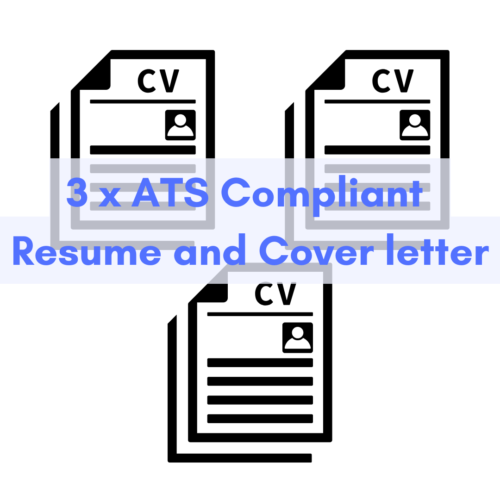The Cost of Living in Australia: What to Expect in 2025
1. Housing Costs in Australia (2025)
Housing is one of the biggest expenses in Australia, and prices vary significantly between major cities and regional areas. Here’s an estimated breakdown of rental costs:
| Location | One-bedroom Apartment (City Centre) | One-bedroom Apartment (Outside City) | Shared Accommodation |
|---|---|---|---|
| Sydney | $2,800 – $3,800 per month | $2,000 – $2,800 per month | $800 – $1,500 per month |
| Melbourne | $2,200 – $3,200 per month | $1,600 – $2,500 per month | $700 – $1,300 per month |
| Brisbane | $1,800 – $2,700 per month | $1,400 – $2,000 per month | $600 – $1,200 per month |
| Perth | $1,700 – $2,500 per month | $1,300 – $1,900 per month | $550 – $1,100 per month |
| Adelaide | $1,500 – $2,400 per month | $1,200 – $1,800 per month | $500 – $1,000 per month |
Tips for Managing Housing Costs
- Consider shared accommodation to cut costs.
- Look at regional areas where rent is more affordable.
- Apply for student housing if studying in Australia.
2. Food & Grocery Expenses
The cost of food in Australia is relatively high compared to other countries due to import costs and inflation. Here’s an estimate of basic grocery expenses:
| Item | Average Cost (2025) |
| Milk (1L) | $2.50 – $3.50 |
| Bread (Loaf) | $3.00 – $4.50 |
| Rice (1kg) | $3.50 – $5.50 |
| Eggs (12) | $5.50 – $7.00 |
| Chicken (1kg) | $10.00 – $15.00 |
| Beef (1kg) | $15.00 – $22.00 |
| Apples (1kg) | $4.00 – $6.00 |
| Coffee (Café) | $4.50 – $6.50 |
| Restaurant Meal | $20 – $45 |
Tips to Save on Food
- Shop at local markets for fresh and cheaper produce.
- Buy in bulk from warehouse stores like Costco or Aldi.
- Cook at home instead of eating out frequently.
3. Transportation Costs
Public transport is essential for those living in major cities. Here’s what to expect in terms of transportation costs:
| Transport Mode | Estimated Cost (2025) |
| Public Transport | $160 – $220 |
| One-way Ticket (Bus/Train) | $4.00 – $5.50 |
| Taxi (per km) | $2.00 – $3.50 |
| Petrol (per litre) | $1.80 – $2.50 |
| Ride-sharing (Uber, DiDi) | $20 – $60 per trip |
Money-saving Tips for Transport
- Use student or concession transport cards for discounts.
- Purchase a monthly travel pass for unlimited rides.
- Consider cycling or walking for short distances.
4. Healthcare & Insurance
Australia has a high-quality healthcare system, and international students and expats must have Overseas Student Health Cover (OSHC) or private health insurance.
| Healthcare Service | Estimated Cost (2025) |
| Doctor’s Visit | $80 – $120 (Bulk billing may apply) |
| Specialist Consultation | $150 – $300 |
| Prescription Medication | $20 – $50 per item |
| Private Health Insurance (Monthly) | $100 – $600 |
How to Reduce Healthcare Costs
- Check if you qualify for bulk billing to get free GP visits.
- Compare different health insurance providers for the best deals.
- Keep an emergency fund for unexpected medical expenses.
5. Entertainment & Leisure Costs
Living in Australia isn’t just about expenses – there’s plenty of room for fun too! Here’s what you might spend on leisure activities:
| Activity | Average Cost (2025) |
| Movie Ticket | $20 – $25 |
| Gym Membership | $50 – $200 per month |
| Streaming Services (Netflix, Spotify) | $15 – $30 per month |
| Night Out (Dinner & Drinks) | $60 – $120 |
| National Park Entry | Free – $20 |
| Theme Park Entry | $80 – $150 |
Ways to Save on Entertainment
- Look for student discounts and promotions.
- Use free outdoor activities like hiking and beach trips.
- Take advantage of free community events.
6. Internet & Phone Plans
Staying connected is crucial, especially for students and professionals.
| Service | Estimated Cost (2025) |
| Mobile Plan (Unlimited Calls & 20GB Data) | $30 – $60 per month |
| Home Internet (NBN, Unlimited Data) | $70 – $120 per month |
Tips for Saving on Internet & Phone
- Use WiFi at home and university/work to save mobile data.
- Compare different providers to find the best deals.
Final Thoughts: Is Living in Australia Expensive?
While Australia’s cost of living is high, proper budgeting and smart financial choices can make life more affordable. By finding cheaper housing, using public transport, shopping smart, and taking advantage of discounts, you can enjoy a comfortable lifestyle without breaking the bank.
Key Takeaways
- Sydney and Melbourne are the most expensive cities, while Adelaide and Perth offer more affordable options.
- Housing and food take up the biggest portion of your budget.
- Public transport, healthcare, and entertainment costs can be reduced with smart choices.
- Students and professionals should explore discounts, scholarships, and government support.
- Are you planning to move to Australia in 2025? Share your questions or experiences in the comments below!



